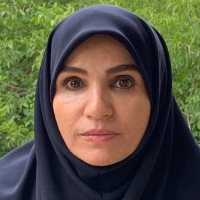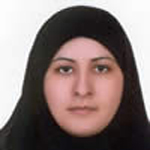Phenomena of elementary teachers' experiences in the process of educational change according to Michael Fullen's approach
Author(s):
Article Type:
Research/Original Article (دارای رتبه معتبر)
Abstract:
The main purpose of this study is to explain the current state of educational change in the micro (educational area and school) based on the life experiences of primary school teachers, according to the theory of Michael Fullan (2007) and determine its distance from the desired situation. The research approach is qualitative and its main method is phenomenology. The study population is elementary school teachers who were selected (10 people) as the criterion-based sampling method, criterion-type, until the theoretical saturation. Also, in order to validate the findings, 2 additional interviews were conducted and therefore, 12 people were selected. The research tool includes face-to-face interviews of semi-structured and unstructured type. One of the most important achievements of the present study is to prove the importance of the combination of two types of individual and social agency in the teacher and also his three-dimensional role in educational change.
Keywords:
Language:
Persian
Published:
Journal of Educational and Scholastic Studies, Volume:13 Issue: 40, 2024
Pages:
25 to 47
https://magiran.com/p2793900
مقالات دیگری از این نویسنده (گان)
-
A Comparative Study of Strategies and Challenges Related to Overloaded Curriculum in Primary School in Australia and Ireland: Lessons for Iran
Farzaneh Askary, Mohamad Javadipoor *, , Keyvan Salehi
Iranian Journal of Comparative Education, Autumn 2024 -
Towards Reflective Teaching: Meta-Synthesis of Reflection in Teaching-Learning Process
Nazanin Ghasemi, *
Education Journal, -
Identifying the Effective Factors in Choosing the Field of Humanities: a Reflection on the Narratives of My Academic Period
Farzaneh Tari, *, Nasibe Tari
Journal of Theory and Practice in Curriculum, -
Iranian EFL teachers' perceptions of EFL curriculum’s CLT-based reform drawbacks: Causes and solutions
Rezvān Hakimzāde, Hamidrezā Iraji *, Hassan Maleki, Mohammad Javādipour
Quarterly Journal of Educational Innovations,



